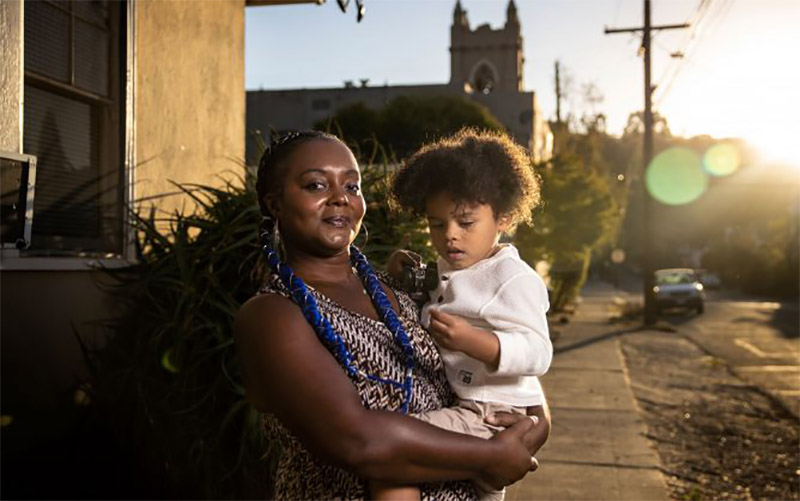From DisabilityScoop.com —
LOS ANGELES — Ever since her son, Landon, was born three years ago, Nakenya Allen has been fighting.
Fighting to get a diagnosis for the cause of Landon’s digestive problems, which landed him in the emergency room multiple times before he turned 18 months old. Fighting to get doctors to take her concerns about her son’s constant distress seriously. And, after he was diagnosed with a rare birth defect in his spinal cord, fighting with medical and disability service providers to get financial support for his care.
“I didn’t feel like I was being heard,” said Allen, 42, who is Black and lives in Martinez, in the Bay Area. “At the time, did I consider it a racist issue? I don’t think so because I was so serious about trying to help my son.
“I just knew that they weren’t helping us, and I was desperate. But looking back on that now, I do feel like there was a bias.”
Many parents of children with special health care needs — regardless of race — report struggling to receive prompt diagnoses and access to adequate therapy and support services. But for families of color, particularly those who are Black and Latinx, the struggle is more acute.
Families fighting biased attitudes
These families often grapple with biased attitudes from medical, service and education providers. Sometimes the bias is unconscious, but the net result is the same — poorer care than white families typically receive. Health systems also don’t often account for the impact of institutionalized racism on people of color — such as higher poverty rates, less access to jobs with flexible and paid time off to care for kids, and greater transportation challenges — and that lack of awareness can often exacerbate the inequities. Cultural and language barriers can make it hard for these parents to navigate California’s labyrinthine system for children with disabilities, advocates said.
“There’s just a lot of systemic racism,” said Kausha King, director of the Community Empowerment Project, a program that provides navigation support and training to Black families of children with special needs in Alameda and Contra Costa counties. “Systems are not technically set up to serve our families, and there are more and more Black families that are in need of these systems.”
Research consistently shows disparities between how children with disabilities are served, depending on their racial and ethnic background. For years, families of color and non-English speaking families have received fewer services than white families through California’s 21 social services agencies, known as regional centers, for children with developmental disabilities. Regional centers are community-based nonprofit agencies that contract with California’s Department of Developmental Services to provide and coordinate services for people with developmental disabilities and their families.
In its latest report on the matter, the pro-bono law firm Public Counsel found that regional center spending on Black and African-American children has improved in recent years, but it’s still 11 percent less than the amount spent on white children. Asian children received 16 percent less funding than white children in the 2018-2019 fiscal year, the most recent period for which data is available. Latinx children fared the worst, receiving only 69 percent of the spending on services that white children received.

